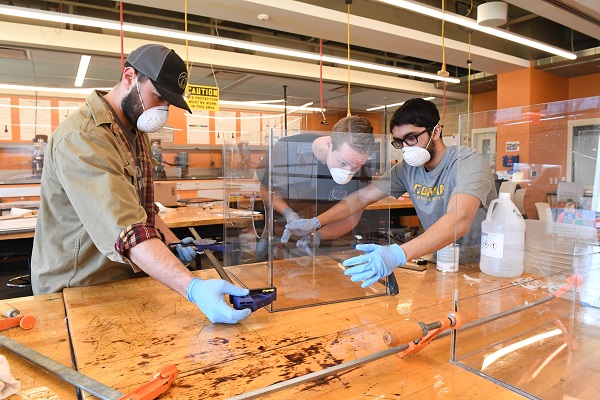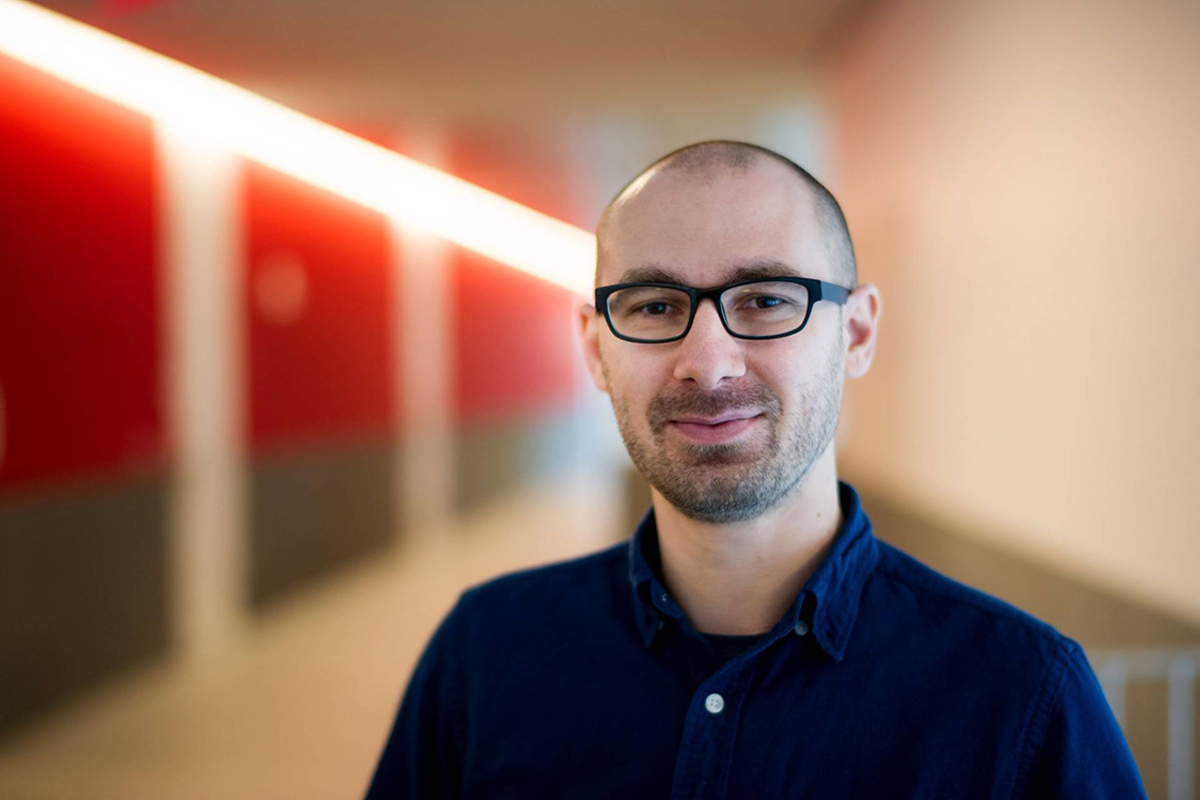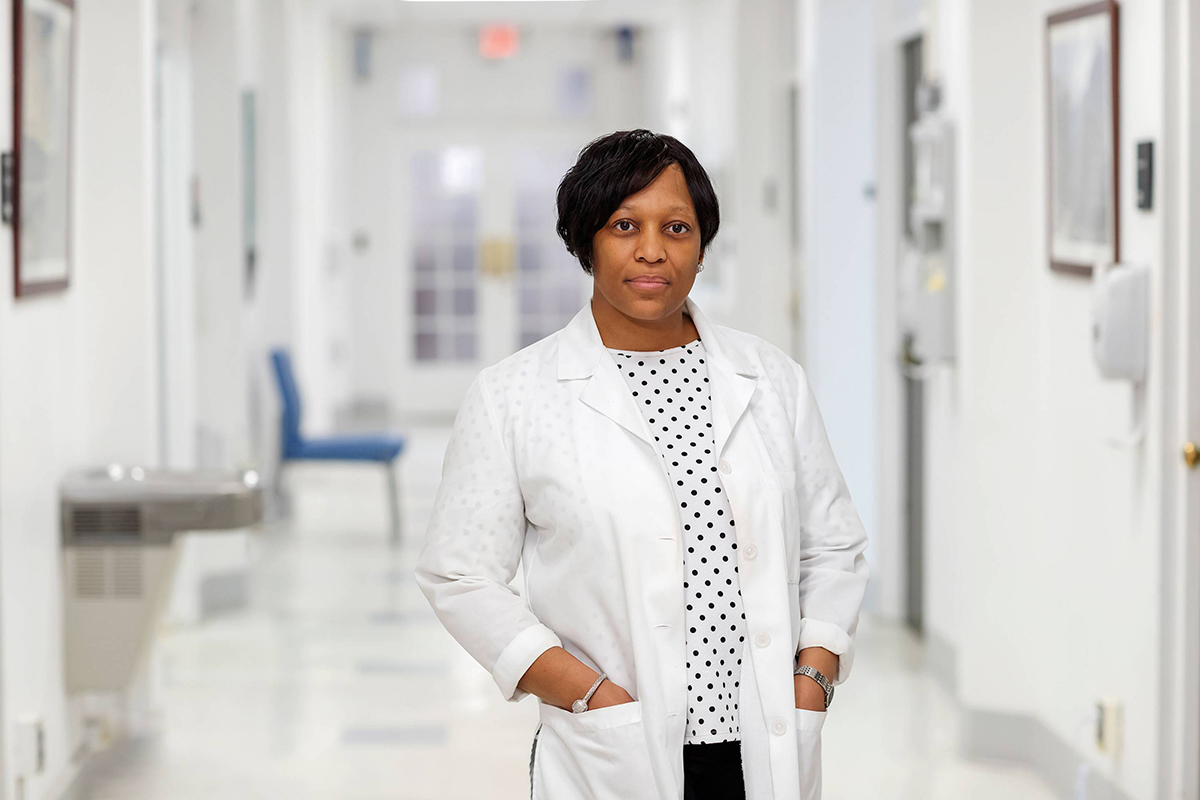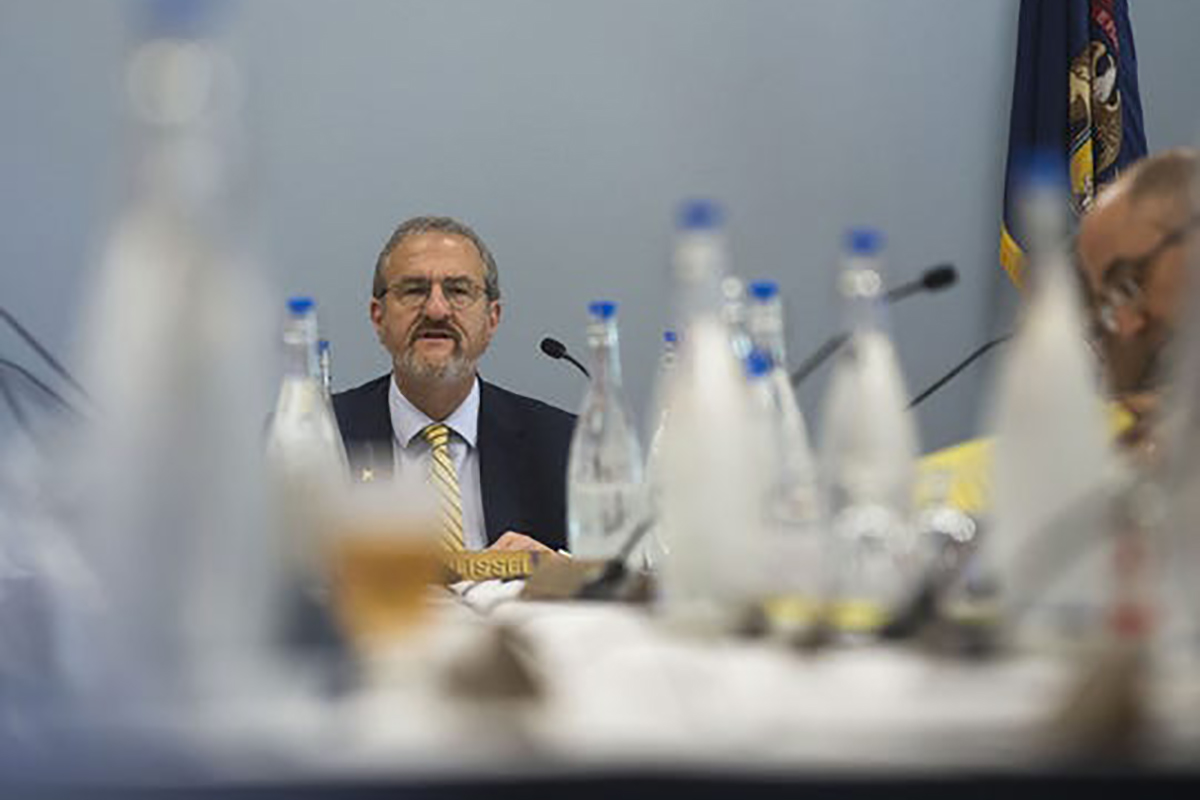
The email arrived at the very end of what was already a long day on March 30. Francis “Mac” Haas *16 had just spent hours preparing for the next day’s class, his first virtual lecture since Rowan University shifted to learning remotely. The email was essentially a “cold call” from Dr. Kelly Schiers, a pulmonologist and the critical care coordinator for Jefferson Washington Township Hospital in Turnersville, New Jersey. Her hospital was inundated with COVID-19 patients, with the number of ICU cases tripling in the preceding 48 hours. Her urgent request: Can you manufacture intubation boxes — fast?
The durable fish-tank-like cubes, which fit over a sick patient’s head and shoulders, provide an essential protection barrier for frontline healthcare workers, especially anesthesiologists treating patients on ventilators. Haas looked at the specs Schiers included, based on an open-source plan posted online, and called some colleagues. The next day, when he spoke with Schiers on the phone, he responded: No problem, how many do you need?
“It was an opportunity where you say to yourself, ‘Can I do a little bit to help?’ And the answer is ‘Absolutely,’” said Haas, who knew Rowan had the facilities, the know-how, and the labor to deliver. “Within 24 hours, we had our first prototype to show her.”
That was just the beginning. In the last four weeks, Haas, an assistant professor in Rowan’s mechanical engineering department, has delivered 50 intubation boxes to nine hospitals in South Jersey and around the Philadelphia area. Three of his students — seniors Joshua Meyer, Kunj Parmar, and Colton Jacobucci — eagerly joined the project. With campus shut down due to the virus and a finite number of activities available during social distancing, the three roommates were itching for something to do. “Even with schoolwork, there’s only so much of it you can do before you need some kind of outlet,” Haas said. “I think this was a bit of therapy for them, in a sense. And maybe a reason to get out of the house a little bit, but for a just cause.”
Using large sheets of polycarbonate and other materials donated by FocalCool, a South Jersey-based medical device research company, Haas’ team built their first intubation boxes as instructed. But since then, they’ve modified their design from box-shaped to a flexible shield that allows doctors more room to maneuver, based on feedback from the hospitals. Not only are the new intubation barriers more effective, but they’re more efficient to produce as well. “This allowed us to reduce the amount of time it takes to produce a unit by easily a factor of 10,” Haas said. “And out of the same sheet of plastic where we were getting four intubation boxes, we can now make 16 intubation shields.”
Some health workers find the modified shields permit more access than the original boxes and are easier to clean, transport and stack. Since they’re reusable, Haas hopes that the demand for them will “flatten,” alongside a hoped-for regression in COVID-19 cases, but his team is prepared to provide more if there’s an additional need. “We should all be looking for opportunities to help and step up in a way that makes sense,” Haas said. “This made sense for us: the right people, the right place, the right time.”




